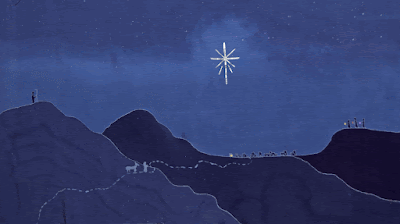“My life is
Yours. My hope is in You only.
My heart You
hold; because You made this sinner Holy.”
-All Sons
& Daughters
I flipped
through the hand-written notes in my patient’s medical record or “scale
book.” She had been evaluated in a
couple of hospitals over the past six months due to irregular bleeding. At one she had undergone a biopsy for a
“lesion” in her birth canal. After
awaiting the result of this test unsuccessfully for months, she returned to her
home province of Jiwaka in the highlands to seek care at Kudjip. She had a young child and looked about thirty-five
years old to me.
I summoned
our clerk as a chaperone and examined her with a terribly un-surprising
result. A tumor growing from her cervix
encroached on the surrounding tissues.
Because of her age, I still hoped that perhaps the cancer hadn’t spread
beyond the higher portion of birth canal.
I told her and her “was-meri” that I wanted to perform a scan to
determine the extent of her illness, but that I was worried this might be a
cancer that is beyond our treatment.
“Dispela sik I look olsem sik nogut I stap, tasol I gat lik-lik chance
we mipela inap ken rausim yet.”
Before we
could get to the ultrasound a nursing student knocked on the door and called
from the other side, without opening it, “Dokta Mark – Dokta Angeline I nidim
yu long D-ward hariap.”
I have been
working with our newest PNG doctor in training for the past few weeks on the
maternity service. It has been a
privilege and a joy to see her embrace caring for the women of Jiwaka and
expand her obstetrical knowledge and skills.
As I
entered delivery room number three, a vigorous but small baby lay in the basinet
next to the bed. Usually this would be
the point at which the room relaxes a bit, but there was still a tension in the
air as Dr. Angeline gowned up and approached our laboring mother. While the nursing students started an IV drip,
the midwife informed me, “Second baby I kam breech.”
I looked
around Angeline’s shoulder and saw a distinct gluteal cleft approaching the
perineum with mom’s contractions and pushing efforts. I quickly asked, “How many breech deliveries
have you done?” With what I imagined was
a nervous smile beneath the surgical mask, Angeline said, “None.”
I gently
rotated the emerging baby’s pelvis to keep the back of the baby up, then placed
Angeline’s hands on the sacrum. The legs
delivered and baby emerged to the umbilicus, at which point Angeline guided her
hands over the baby’s back and along the arms to fold the elbows and bring the
arms out. The moment of truth had
arrived – the largest part of the baby, the head, now needed to be flexed
through the birth canal. As Angeline
performed the needed maneuver, mom gave a final push, and her second baby made
its entrance into this world with a mighty and healthy cry.
As the baby nestled onto mom’s abdomen,
Angeline and I exchanged a gloved fist-bump while she prepared to conclude the
delivery. I have a passion for teaching
medicine, so my heart glowed a bit as I de-gloved listening to the cries of two
healthy newborns and watching my registrar competently care for her patient.
In my
excitement, I had forgotten who waited in my exam room.
About
thirty minutes after my abrupt departure, my patient and I made our way to the
ultrasound machine. The scan confirmed
that the tumor had indeed spread to involve multiple internal organs rendering
it inoperable. The warm glow in my heart
felt like it had cold water poured over it.
We returned to my exam room and I shared the diagnosis and prognosis
with her and her guardian. After answering
a few questions, I wrote medicines to help with the symptoms she was currently
experiencing, prayed for healing and comfort with them, and escorted them to
the chaplain’s room for further counseling.
“For
everything there is a season, and a time for every matter under heaven:
A time to
be born, and a time to die”
Ecclesiastes
3:1-2
Some of our
newer doctors recently took a much-deserved break to recharge and the clinical
work of the hospital increased. Each day
wore on the next and the call nights seemed to come thick and fast. The never-ending stream of patients
transformed from an opportunity to share Christ’s love and hope to a bit of an
obligation. My temper shortened and my
thoughts dwelled on all the “bad” – bad outcomes, bad news, and bad sleep. The good continued – but I saw less of it
than I wanted (or needed).
In our
first weekend in PNG I accompanied my language tutor, Gabriel, on a walk around
a nearby village. We stopped by a “haus-kapa”
with a water tank just as I asked, “Gabriel – are there seasons in Papua New
Guinea? Is there a rainy season?” He walked over to the water tank and pounded
it in a few different places, discovering that the water was near the bottom
and pronounced, “Yes – it is dry season.”
There are
no daily weather reports in our Waghi Valley.
No constant measurements of temperature and rainfall nor predictions
about storms to come. It is difficult to
appreciate what kind of season we are in unless a deliberate pause is made to
reflect upon it.
After
nearly nine years of serving in the highland jungles of Papua New Guinea, I
have discovered the same is often true about the seasons God brings to me in
the work of serving my family, my patients, and my community. While many days feel the same, there are
changes I might notice if I took the time to do so. Our latest season has been one of heavier
work in the hospital and more demands on my time.
But God’s provision is not less in those
moments simply because I do not feel Him as acutely. In fact, it may be given in a greater share
than at times I feel more composed or relaxed.
If I am willing to recognize that a season of difficulty is something
ordained with a purpose, I can learn to dwell there without constantly looking
for an exit. That season can be
something I endure and, one day, even embrace rather than escape. Because there is another season coming that
is ordained for refreshing and life-giving waters. Waters made all the better because of the thirsty
and dry ground they land on.
I called to
the front of our outpatient queue for another patient to join me in my
room. As a young man rose and made his
way toward me, a smile broke out on his face that gave me pause. He entered and said, “Doctor, before I tell
you about my illness, I want to share a story.”
As one of a
handful of doctors working in the referral hospital for a population of 400,000
people, my margin for listening to stories is normally low and I’ve been known
to interrupt patients before getting there.
But at times I bite my tongue and decided to on this occasion.
“About a
year ago I brought my father to you, and he was very sick. In fact, you said that he wouldn’t live. You prayed with us. I took him to another hospital to look for
more treatment, but they were not able to help him, and he passed away shortly
after. But I never forgot that
prayer. I’m not a church-man, but I will
never forget it. Thank you for praying
for us.”
“Your glory
is so beautiful; I fall onto my knees in awe.
And the
heartbeat of my life is to worship in your light.
Because
Your Glory is so beautiful”















